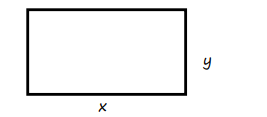IB Mathematics AI SL Optimization problems in context MAI Study Notes - New Syllabus
IB Mathematics AI SL Optimization problems in context MAI Study Notes
LEARNING OBJECTIVE
- Optimisation problems in context
Key Concepts:
- Optimisation.
- IBDP Maths AI SL- IB Style Practice Questions with Answer-Topic Wise-Paper 1
- IBDP Maths AI SL- IB Style Practice Questions with Answer-Topic Wise-Paper 2
- IB DP Maths AI HL- IB Style Practice Questions with Answer-Topic Wise-Paper 1
- IB DP Maths AI HL- IB Style Practice Questions with Answer-Topic Wise-Paper 2
- IB DP Maths AI HL- IB Style Practice Questions with Answer-Topic Wise-Paper 3
OPTIMISATION PROBLEMS
Optimization Problems in Context
Optimization involves finding the maximum or minimum values of a function, often subject to constraints, and is widely used in real-life applications such as maximizing profit or minimizing cost.
Key Steps in Solving Optimization Problems:
- Identify the quantity to be maximized or minimized (objective).
- Write an equation for that quantity in terms of a variable.
- Use any constraints to reduce it to a function of a single variable.
- Differentiate to find critical points by solving \( f^\prime(x) = 0 \).
- Use second derivative or context to determine if it’s a max/min.
Common Applications:
- Maximizing revenue or profit
- Minimizing cost or material usage
- Maximizing area or volume given perimeter/surface constraints
Example A company finds that the profit \( P \) from selling \( x \) units is given by: \( P(x) = -2x^2 + 80x – 100 \). Find the number of units that should be sold to maximize profit. ▶️Answer/ExplanationDifferentiate: \( P'(x) = -4x + 80 \) Set derivative to 0: \( -4x + 80 = 0 \Rightarrow x = 20 \) Second derivative: \( P”(x) = -4 \lt 0 \), so maximum. Answer: Profit is maximized when 20 units are sold. |
Example A manufacturer finds the cost \( C \) to produce \( x \) items is: \( C(x) = x^2 – 40x + 500 \). Find the number of items that minimizes the cost. ▶️Answer/ExplanationDifferentiate: \( C'(x) = 2x – 40 \) Set derivative to 0: \( 2x – 40 = 0 \Rightarrow x = 20 \) Second derivative: \( C”(x) = 2 \gt 0 \), so minimum. Answer: Minimum cost when 20 items are produced. |
Example Find the dimensions of a closed cylindrical can with a fixed surface area of $600π$ cm² that maximize the volume. ▶️Answer/ExplanationLet radius = \( r \), height = \( h \) Surface area: \( 2\pi r^2 + 2\pi rh = 600\pi \) ⇒ \( r^2 + rh = 300 \) ⇒ \( h = \frac{300 – r^2}{r} \) Volume: \( V = \pi r^2 h = \pi r^2 \left( \frac{300 – r^2}{r} \right) = \pi r(300 – r^2) \) Differentiate: \( V'(r) = \pi(300 – 3r^2) \) Set \( V'(r) = 0 \Rightarrow 300 – 3r^2 = 0 \Rightarrow r = 10 \) Then \( h = \frac{300 – 100}{10} = 20 \) Answer: Max volume when radius = 10 cm, height = 20 cm. |
Example Among all the rectangles of area 25, find the one with the minimum perimeter. ▶️Answer/ExplanationLet \( x \) be one side of the rectangle (this is our variable).
If the other side is \( y \), then: Area = 25 ⇒ \( xy = 25 \Rightarrow y = \frac{25}{x} \) The perimeter is: \( P = 2x + 2y = 2x + \frac{50}{x} \) Differentiate: \( \frac{dP}{dx} = 2 – \frac{50}{x^2} \) Find stationary points: \( \frac{dP}{dx} = 0 \Rightarrow 2 – \frac{50}{x^2} = 0 \Rightarrow x^2 = 25 \Rightarrow x = 5 \) Check second derivative: \( \frac{d^2P}{dx^2} = \frac{100}{x^3} \) At \( x = 5 \), \( \frac{d^2P}{dx^2} > 0 \), so we have a minimum. Answer: The rectangle with minimum perimeter is a square (when \( x = y = 5 \)), and minimum perimeter is: \( P_{\text{min}} = 2(5 + 5) = 20 \) |

